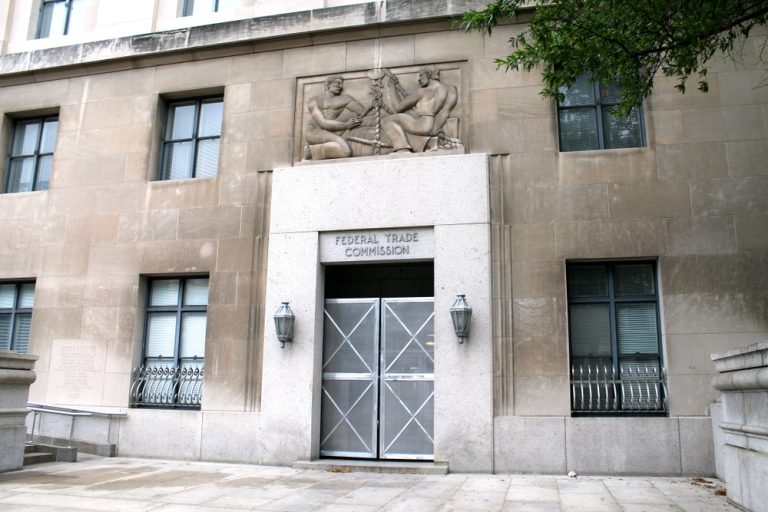Conflict Certified: District Split on Impact Rule Comes Before Supreme Court
Conflict Certified: District Split on Impact Rule Comes Before Supreme Court

The Supreme Court of Florida announced on August 21, 2025, that it will hear oral argument in Florida BC Holdings, LLC v. Reese, No. SC2024-0139, on October 8, 2025. The main issue before the court will be whether the impact rule applies to intentional torts. The case arrives at the supreme court on appeal from the Sixth District Court of Appeal, which held that the impact rule does not apply to intentional torts. Fla. BC Holdings, LLC v. Reese, 376 So. 3d 109, 119 (Fla. 6th DCA 2023). In so finding, the Sixth District certified conflict with the First District’s decision in Reid v. Daley, 276 So. 3d 878 (Fla. 1st DCA 2019).[1]
In its opinion, the Sixth District detailed Florida’s jurisprudence when it comes to the application of the impact rule to intentional torts, observing it is “unclear.” Id. at 113; see also id. at 115–19 (surveying Florida Supreme Court caselaw on the matter). The impact rule was first recognized in Florida by the supreme court in International Ocean Telegraph Co. v. Saunders, 14 So. 148, 151–52 (Fla. 1893). There, the high court reversed an award of emotional distress damages, holding that in tort actions a plaintiff who only suffers mental distress without any accompanying physical injury or suffering is precluded from recovering damages for pure emotional distress. Id. “In essence, the impact rule requires that ‘before a plaintiff can recover damages for emotional distress caused by the negligence of another, the emotional distress suffered must flow from physical injuries the plaintiff sustained in an impact.’” R.J. v. Humana of Fla., Inc., 652 So. 2d 360, 362 (Fla. 1995) (quoting Reynolds v. State Farm Mut. Auto. Ins., 611 So. 2d 1294, 1296 (Fla. 4th DCA 1992)).
Since International Ocean, the impact rule has been generally applied to negligence actions. See, e.g., Kirksey v. Jernigan, 45 So. 2d 188, 189 (Fla. 1950). In Reese, however, the Sixth District identified various exceptions carved out by the Florida Supreme Court for specific torts sounding in negligence. See 376 So. 3d at 114–15 (collecting cases and examples). But in the Sixth District’s view, these causes of action “all fall within a class of actions for which the foreseeable harms flowing from the negligent conduct are predominantly emotional in nature.” Id. at 115. And, importantly, the Sixth District concluded there has never been a case where the Florida Supreme Court applied the impact rule “to bar a plaintiff from recovering emotional distress damages resulting from an intentional tort,” and “never stated in any case that the impact rule applies to intentional torts as a general matter.” Id.
Given this lack of binding precedent, the Sixth District ultimately concluded the impact rule does not apply to intentional torts. Id. at 119. This finds support from the Second District, which has likewise held it has “no application to intentional torts.” Rivers v. Grimsley Oil Co., 842 So. 2d 975, 976 (Fla. 2d DCA 2003). Seemingly opposing this view, however, is the First District’s decision in Reid, which affirmed a trial court’s decision to dismiss the plaintiff’s claim for fraud, deceit, dishonesty, and misrepresentation on the part of his postconviction attorney[2] because the amount in controversy fell below the circuit court’s jurisdictional threshold. 276 So. 3d at 879–80. While the Reid plaintiff sought $4,500 in monetary damages, he also sought $25,000 for emotional damages as well. Id. at 879. But because he “did not allege that his mental anguish flowed from any physical injury or impact,” the First District found the plaintiff could not overcome the impact rule’s requirements. Id. at 880. That is, because there was “no connection between the alleged emotional suffering and any physical impact,” the plaintiff could not “seek emotional distress damages unless an exception to the impact rule applies.” Id. Finding no applicable exception, the First District held that emotional distress damages were unavailable because the plaintiff did not satisfy the impact rule and, as a result, the plaintiff’s complaint failed to satisfy the amount-in-controversy requirement for jurisdiction. Id. at 880–81.
In the Sixth District’s view, the First District in Reid had utilized some of the murky Florida Supreme Court jurisprudence as “implying that the impact rule generally applies to intentional torts but that some intentional torts are exceptions to the impact rule.” Reese, 376 So. 3d at 120. While recognizing that the First District relied on language of the Florida Supreme Court, the Sixth District nonetheless disagreed that the impact rule applies to intentional torts and certified conflict with Reid. Id.
Having lost before the Sixth District, Florida BC Holdings, LLC d/b/a Synergy Equipment (“Synergy”), sought review in the Florida Supreme Court. The court accepted jurisdiction and the case proceeded to merits briefing. In its initial brief on the merits, Synergy argued that the exceptions carved out by that court to the impact rule fall into three categories: (1) cases involving punitive damages, (2) case involving certain bystanders, and (3) specific enumerated causes of action based on certified questions. The court had not, Synergy argued, limited application of the impact rule solely to negligence actions or acknowledged a blanket exception for intentional torts. Given this, Synergy urged the high court to approve Reid, quash Reese, and find the impact rule generally applies to intentional torts (subject to previously-recognized exceptions).
In his answer brief on the merits, Mr. Reese maintained that the Reese holding should be approved because the impact rule only applies to claims of emotional distress that stem from another’s negligence, not when an allegedly wrongful act is intentional or willful. Relying on perceived precedent from the Florida Supreme Court, Mr. Reese argued that negligence must be distinguished from intentional torts, and that caselaw shows recovery of emotional damages flowing from intentional or willful actions is permitted. Mr. Reese also pointed to other decisions by district courts of appeal in support, including Rivers, as well as decisions of the Third, Fourth, and Fifth Districts. In Mr. Reese’s view, the Sixth District’s decision fit neatly within existing jurisprudence and should be approved, with Reid being quashed to the extent it conflicts with the court’s ultimate holding.
Given the competing viewpoints on the impact rule’s applicability to intentional torts, the supreme court’s decision will likely resolve the issue or provide guidance on the matter.
[1] The Sixth District’s opinion also certified two questions of great public importance concerning: (1) whether the impact rule applies to intentional torts, and (2) whether the impact rule applies to tortious interference with an advantageous business relationship and, if so, if it applies when this tort is committed with actual malice. Fla. BC Holdings, LLC, 376 So. 3d at 123.
[2] While the First District did not specifically acknowledge these as intentional torts, the Sixth District noted “all of the alleged wrongs discussed in the [Reid] opinion are intentional torts.” Reese, 276 So. 3d at 120 n.9.
This article was originally published in the Reporter, a publication of The Florida Bar Appellate Practice Section and is published here with permission.








